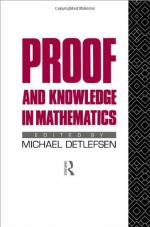|
This section contains 1,333 words (approx. 5 pages at 300 words per page) |

|
Following on the resounding successes of the preceding century, eighteenth-century mathematics not only continued to break important new ground, but also paused to consolidate the gains made by Isaac Newton (1642-1727) and Gottfried Leibniz (1646-1716) through their invention of the calculus. Leonhard Euler (1707-1783), one of the greatest mathematicians of all time, helped to standardize and formalize mathematical notation, while also making important contributions to virtually every branch of the discipline. At the same time, mathematics education was revolutionized, resulting in a more standard approach to teaching mathematics to students at all levels and adding to the mathematical sophistication of the population who attended school. Add to these the development of fundamental tools, such as probability and statistical theory, imaginary numbers, and the continued development of algebraic tools, and it is apparent that the eighteenth century was a time of great mathematical progress, setting...
|
This section contains 1,333 words (approx. 5 pages at 300 words per page) |

|


